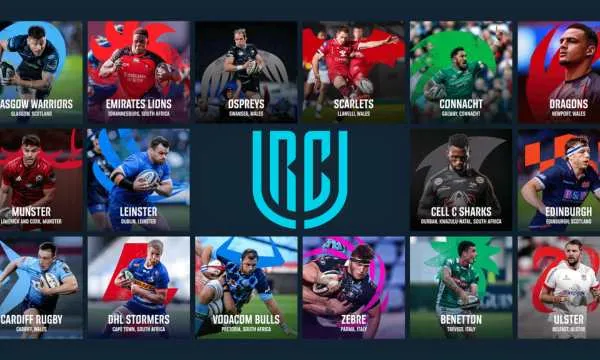The Springboks are much more than a national rugby team — they are a symbol of unity and resilience for the entire South African nation.
Ad
When the men in green and gold take the field, millions of hearts beat in unison, regardless of any condition in play.
The story of the Springboks is filled with unforgettable moments, from the iconic image of Nelson Mandela presenting the World Cup trophy to Francois Pienaar in 1995 to their more recent triumphs.
Get to know more about the team that transcended sports and became a powerful emblem of national reconciliation.
1. The Green and Gold Legend of World Rugby
Officially founded in 1906, the South African national team experienced decades of isolation, returning to the international stage only in 1992.
The leaping springbok emblem became a symbol of excellence and resilience on the world stage.
The Springbok identity was forged over decades of physical, strategic, and hard-hitting rugby.
Their playing style traditionally favors direct confrontation, dominant forwards, and an almost impenetrable defense.
This competitive DNA turned South Africa into one of the most feared and respected nations in world rugby.
After returning to international competition, the Boks quickly reaffirmed their status among the rugby world’s elite.
The green and gold became synonymous with unshakeable determination in the face of any challenge.
2. World Cup Kings: Four Historic Victories
The Springboks have entered rugby history as the only national team to win four Rugby World Cup titles, elevating them to the sport’s highest echelon.
Their first victory, in 1995, transcended rugby and became a powerful symbol of the new South Africa.
With the inspiring presence of Nelson Mandela wearing the number 6 jersey, the Springboks defeated the incredible All Blacks at home.
In 2007, under the leadership of John Smit and the tactical brilliance of Jake White, they won their second global title.
The squad showed impressive mental strength after a humbling early loss to the Wallabies in the group stage.
The most recent triumphs cemented the Springboks as a global rugby dynasty.
In 2019, Siya Kolisi made history as the first captain to lift the Webb Ellis Cup.
Just four years later, in 2023, Kolisi repeated the feat in France, defeating the All Blacks in a dramatic 12-11 final — setting a record-breaking fourth World Cup win for South Africa.
3. Memorable Rugby Championship (and Tri-Nations) Titles
Beyond their World Cup success, the Springboks boast an impressive record in the Southern Hemisphere’s top competition.
In the former Tri-Nations format — held with only New Zealand and Australia — South Africa claimed three prestigious titles (1998, 2004, and 2009), each marking key eras in the team’s evolution.
The expansion into the Rugby Championship in 2012, with the inclusion of Argentina, opened a new chapter.
In 2019, under coach Rassie Erasmus, South Africa won the tournament for the first time in its expanded format.
That triumph served as the perfect springboard for their victorious World Cup campaign later that year in Japan.
Their 2023 Rugby Championship title was another milestone, becoming a crucial stepping stone before once again becoming world champions in France that same year.
4. Other Notable Springbok Triumphs
Beyond the World Cups and the Rugby Championship, the Springboks have achieved significant victories in other major international competitions.
Test series victories against the British & Irish Lions stand out as some of the most emotional moments in South African rugby history.
The gritty 2021 series win is remembered for the team’s extraordinary mental resilience under pressure from fierce opposition.
The Boks also boast an impressive record across European tours, including away victories against England, Ireland, France, and Wales — gaining immense respect across the Northern Hemisphere.
Most notably are the “Grand Slam Tours”, when South Africa defeated all four Home Nations in sequence.
Trophies like the Freedom Cup and the Mandela Challenge Plate reflect the team’s consistent success against major rivals like the All Blacks and Wallabies.
At home, the Castle Lager Incoming Series showcases Springbok dominance on home turf, defeating touring Tier 1 nations.
While not as prestigious as the World Cup, these competitions helped build the Springboks’ high-performance mindset and winning culture.
5. The Stars Leading the Boks Today
Today’s Springbok squad is arguably the most talented and deep generation in South African rugby history.
Captain Siya Kolisi has transcended the sport to become a national icon of leadership and inspiration.
His journey from impoverished townships to lifting two World Cups has motivated millions across the country.
In the front row — a group of impact forwards off the bench — has become a game-changer in second-half battles.
Players like Malcolm Marx, Steven Kitshoff, and Frans Malherbe still dominate in scrums and mauls — emblems of the Boks’ traditional physical prowess.
Veteran Eben Etzebeth, with over 100 caps, is regarded as a modern Springbok legend.
In the backline, Handré Pollard delivers tactical control and precision kicking, while Cheslin Kolbe embodies the evolution of South African rugby with electrifying pace and agile footwork.
At center, Damian de Allende and Jesse Kriel form a powerful, technically refined duo — an ideal reflection of the Springboks’ blend of strength and skill.
6. Captains Who Shaped Springbok History
Springbok tradition is built not just on coaches and players, but on iconic captains who defined entire eras of South African rugby.
Francois Pienaar became an eternal figure when he received the World Cup from Nelson Mandela in 1995 — a moment that went far beyond sport. His quiet, efficient leadership set a high standard for future captains.
John Smit captained the Boks through a golden era, including the 2007 World Cup title. With 111 Test appearances, he gained deep respect from teammates and opponents alike.
Jean de Villiers, elegant both on and off the field, led by dignified example during challenging periods for the team.
The legacy of Springbok captains culminates with Siya Kolisi, whose impact defies statistics. As the team’s first captain, he became a symbol of South Africa’s transformation — securing his place among rugby’s greatest leaders by lifting back-to-back World Cup trophies.
6. The Epic Rivalry Against the All Blacks
The clash between Springboks and All Blacks is widely regarded as the greatest rivalry in world rugby — blending mutual respect with fierce competitiveness.
This century-old rivalry began officially in 1921 and represents a clash of contrasting styles: South Africa’s physicality vs. New Zealand’s fluid skill.
Each encounter becomes an epic that often defines the global balance of power in the sport.
Some matchups have become iconic in rugby history. The 1995 World Cup Final is remembered as the moment a newly unified South Africa defied the odds to beat favorites New Zealand in extra time.
In contrast, the 57-0 defeat to the All Blacks in Auckland (2017) marked the Springboks’ worst-ever loss — highlighting the intensity of the rivalry.
The 2023 World Cup Final added another legendary chapter. In a heroic display of defense, South Africa edged out New Zealand 12-11 in Paris to clinch their fourth world title.
This clash perfectly reflected the rivalry’s essence: brutal physicality, extraordinary skill, and unshakeable mutual respect.
7. The Springboks’ Enduring Impact on the Sport
The Springboks’ influence extends far beyond the field — reaching deep into South African society and world rugby.
Tactically, the team has redefined key aspects of modern rugby. Their bold defensive structures, dominance in aerial contests, and clinical tactical execution have been widely emulated.
South Africa’s development structure has evolved dramatically — expanding opportunities for players from historically marginalized communities.
Rugby academies in townships and rural areas are uncovering hidden talent previously ignored by the traditional system.
This evolution is reflected in the increasing diversity of today’s squad, more accurately representing South Africa’s multicultural identity.
Conclusion
The Springboks have built an unmatched legacy as one of the greatest sporting institutions on the planet — far more than just a national rugby team.
With four Rugby World Cup victories, South Africa has set new standards of competitive excellence and mental resilience in global sport.
More importantly, the team has become a symbol of national unity in a historically divided country.
The evolution of the Springboks into a true representation of the Rainbow Nation shows the transformative power of sport when led with purpose and inclusive vision.
This unique blend of sporting greatness and cultural significance guarantees that the green and gold legacy will continue to inspire future generations.


